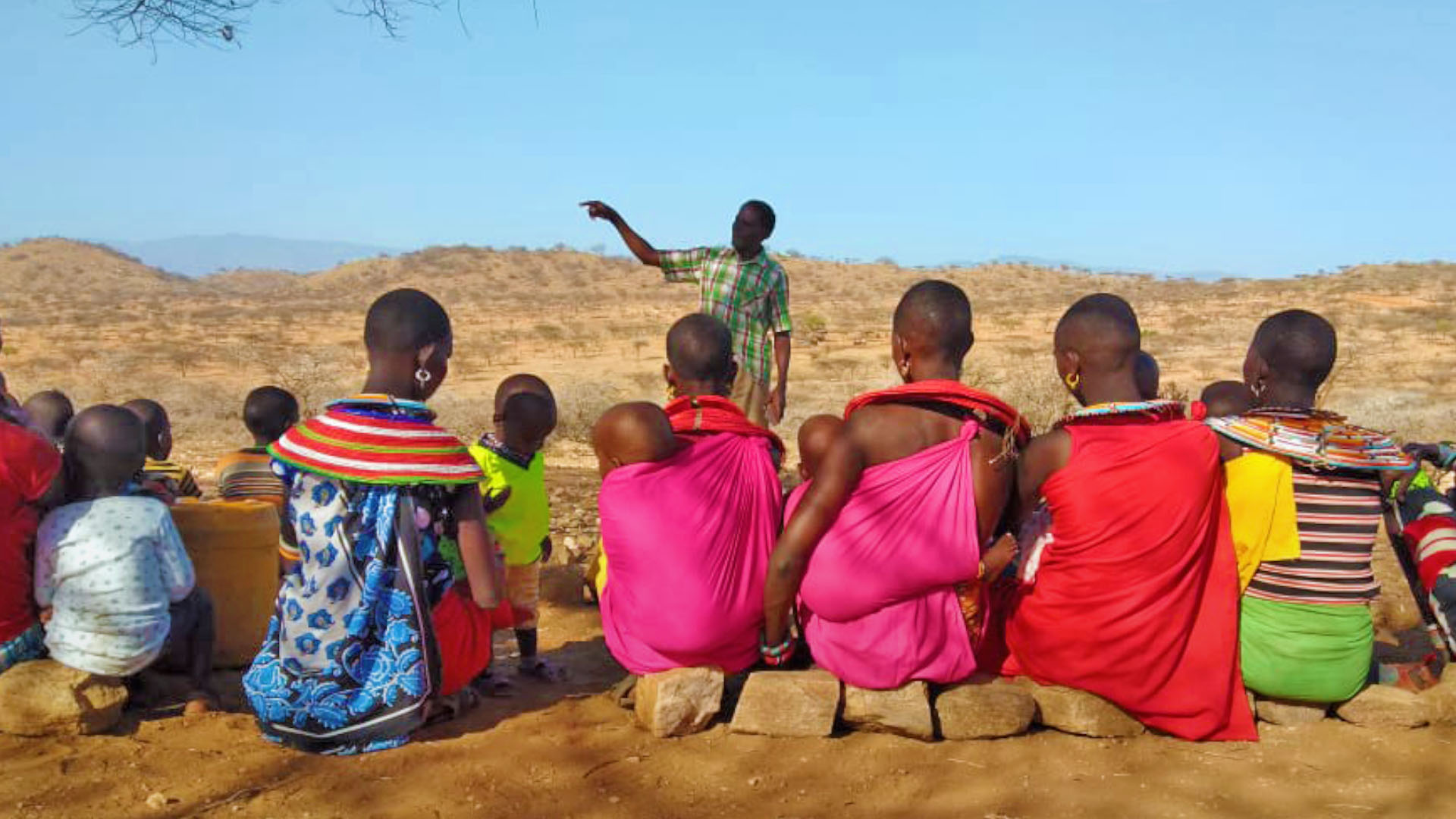Mission workers are entering remote villages in Northern Kenya, and people are hearing the gospel for the first time.
After seeing the Jesus film, a Samburu chief approached the World Challenge team in Northern Kenya and said, “Please bring the Gospel to our village. I think that since creation the Word of God has never reached our village."
In January, Gerald—one of our partners in Kenya—visited one Samburu village alongside another church leader from Murang'a to bring God’s Word to the people.
Recently, he visited again to encourage and build up the church growing there. Fifty women gather under an enormous tree every Sunday to learn more about Christ.
The newest church in Lkwasi, deep in Samburu land, is taking shape.
An Answer to Prayer
The weekly church gatherings were started by one young lady named Hellen who had received Christ five years ago.
The second time Gerald visited, 17 others made the decision to join her in the faith. “They begged me for Bibles, and I was glad to give mine to them, perhaps the only Bible the whole church there has.”
Only Hellen and her husband can speak Swahili, Kenya’s lingua franca among its 60 different tribal languages. They will need to translate what their church’s new Bible says for those who are coming to believe.
“They're so thirsty for God,” Gerald said. “The next phase will be discipleship and encouraging these young believers.”
Local missionaries who regularly work with the Samburu are incredibly hopeful that this opening is an answer to long-time prayers that the Gospel will find a home in the entire region.
Samburu’s Needs for Development
Locals asked Gerald to return and teach them more about health, self-reliance and other skills that are part and parcel of community health evangelism.
Once again, this is a divine opening for World Challenge workers who are looking at several community issues they hope to begin working to alleviate with the Samburu people.
Water scarcity is an acute issue in this region during the dry season, particularly for people who rely on cattle and camel herds for their livelihood.
During the rainy season, a wide river rises enough to cut the villages off from other communities’ resources, most critically the nearest health center. This can be potentially very dangerous if anyone falls ill when they’re unable to reach medical aid.
Literacy levels are fairly low among the Samburu; however, only a small portion of the Bible has been translated into Samburu, a critical means by which to offer literacy lessons to villagers. Two translation organizations are working on making a Samburu Bible, but often this process can take around 12 years for a complete Bible.
In the meanwhile, Gerald commented, “Audio Bibles would be nothing short of a miracle in Lkwasi.”
The Harvest is Plentiful…
While visiting the clinic nearest to the Samburu area, Gerald began talking with a tired and pregnant Samburu woman. She’d walked most of the day and over 12 miles to receive a medical check-up for herself and her unborn baby.
She explained to him that she had heard the gospel when she was young, but there was no church in her village and no opportunity to learn more about Christ.
Gerald and a translator began to explain the gospel to her more thoroughly, opening an opportunity for her to ask questions and learn more.
“We are needed so badly in this village and others like it,” Gerald explained passionately. “The bigger journey has just begun.”
